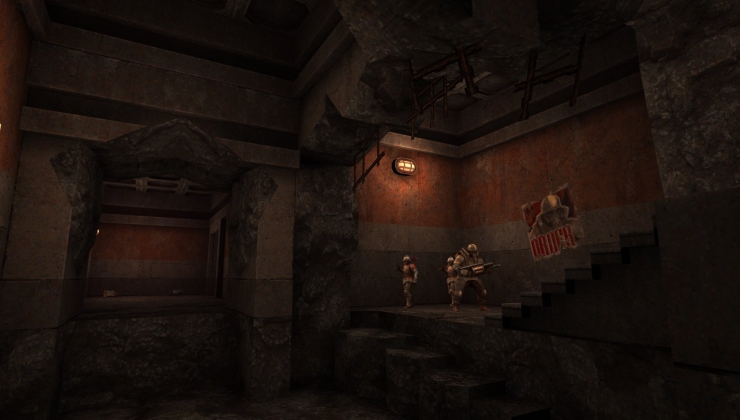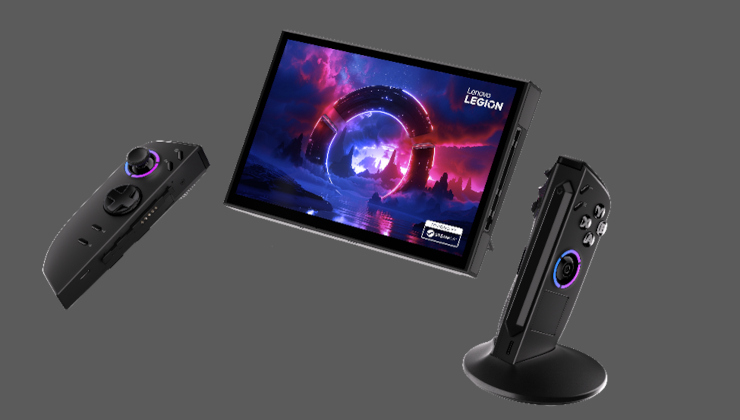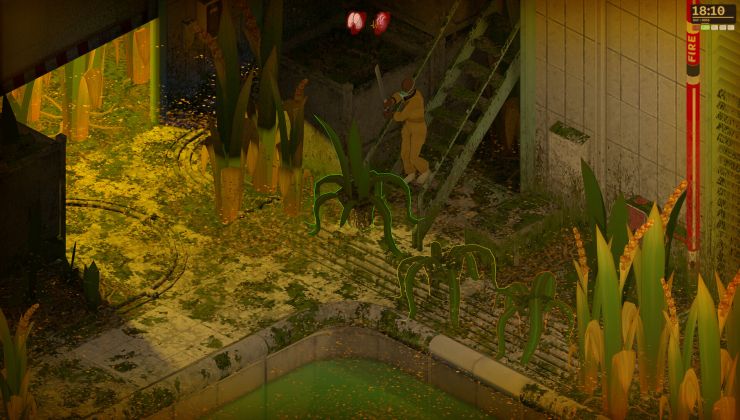Windows 10 is close to being dead now, with support ending this year. So why not try out Linux? Instead of getting a whole new system and having to deal with the increasing amount of AI junk and adverts in Windows 11.
This is where the End of 10 campaign has stepped in to get events sorted, and to help more people get into Linux. Considering that Microsoft are still forcing various requirements for Windows 11, that a whole lot of PCs can't do, it makes sense to try and do something about it that doesn't end up resulting in forcing people into buying new hardware.

On their website that have a growing list of places to get direct help, events you can appear at to get help and instructions on downloading and installing Linux. They also list some pretty standard reasons for trying Linux like it being cheaper, there's no adverts, you having more control and so on.
See more on the End of 10 website.
Perhaps something worth sharing to some friends and family that will soon be dealing with this issue.
And hey, with Fedora 42 out now that has KDE Plasma being promoted to a flagship edition status, there's never been a better time to try it out. KDE Plasma is my favourite desktop environment since it has a lot of customization possibilities, but also resembles a more Windows-like UI compared with GNOME. Worth getting some more people you know to give it a shot.
But people still on Windows 10 are not necessarily unhappy. They just want to hold on to it and not move to something slightly different. The step from W10 to W11 is not bigger than W95 to W98 was. But the step to Linux would be quite big. I just don't see a "big" exodus from Windows happening. This is not going to get people to give up on things that they can't move over to Linux. That only happens when you are truly "done".
Last edited by Ehvis on 12 May 2025 at 10:40 am UTC
I don't know what I'm supposed to do. if I move her to e.g. Linux and LibreOffice... is she going to be able to do her work?
She's 78, she doesn't want to learn new things right now.
Seriously, that Dell XPS aged incredibly well, it has enough RAM to not feel slow and still has ten hour battery life.
So I'm probably going to try and keep it on W10 for her for a few more years. Somehow.
But people still on Windows 10 are not necessarily unhappy. They just want to hold on to it and not move to something slightly different. The stop from W10 to W11 is not bigger than W95 to W98 was.
Yes, they want to keep it - and so there is a problem.
* They should not keep it due to security reasons. (I fear though many people will ignore this.)
* Windows 11 has higher hardware requirements - for no good reason. (Which is very different from the situation back in '98, when computers did get faster all the time and higher requirements did have a good reason.)
* Many people will be surprised to find that they might need to actually buy the new Windows. The free upgrade from Windows 7/8 does not constitute a Windows 10 licence and thus they might not be able to use it for a free 10-to-11 upgrade.
I'm not saying the big exodus will be happening. But even people happy with Windows do have reasons to change this year.
I don't know what I'm supposed to do. if I move her to e.g. Linux and LibreOffice... is she going to be able to do her work?I'm not 78, but I have effortlessly transitioned to using LibreOffice for work. It's feature complete, and would say it's 90-95% identical to MS Office. Also, it doesn't crash and piss me off like MS Office. The single time LibreOffice crashed on me, it politely made me aware of it and saved my work before going ahead with the restart, that was so cute, like it's asking for permission to go ahead and die off so I can instantly restart it snd continue where I left off.
She's 78, she doesn't want to learn new things right now.
Edit: LibreOffice is also on Windows, so it can be tested before committing to the bigger Linux switch.
When comparing the downsides, I believe one should really consider the bullshit Windows pulls off from time to time like the things you mentioned in your message. Often times I see people downplaying all the crap one would have to put up with on Windows, when complaining about the slight cosmetic differences between Windows and Linux, like those are the end of the world.
Linux (Fedora Kinoite) is one-thousand times a better experience for me doing office work than Windows ever was on my work laptop.
Last edited by Pyrate on 12 May 2025 at 11:26 am UTC
Now, obviously this is just one experience, and incompatibilities may be a real concern in other instances, but it is certainly possible for LibreOffice to be a better MS Office than MS Office.
I echo @Pyrate's suggestion: try it out on Windows and see if it's a viable alternative, at least then you'll know if fully switching to Linux is a possibility.
It might cause a small spike, then it'll go back to the snafu state.
The situation can be improved for sure, yet we are in a lucky state. Since I started to use Linux when studying and even fully switched to Linux whe Proton was released, a lot has improved. Devices and driver support, usability and for sure games support.
The reasons for switching are still the same to most people, when they realize they want to switch. Be it hardware support that Linux can still run on, while the latest Windows version doesn't. Or cost, or freedom, or curiosity or the fact that the computer feels like being yours again.
The recent PewDiePie video¹ was nice to watch, yet all the arguments he mentioned why he switched (and so should others) are the same arguments as ever. Yet great to see how he appreciates Linux and all the stuff he can do with it.
I'm quite happy to be able to play way more games than I have time, can enjoy VR and do all my work stuff on Linux. Still things have to improve, a normal user will have to put quite some effort into getting everything to work as they want it are overwhelmed with all the options etc. Valve is doing a great part with giving one solution to one problem, gaming on Linux via Steam Deck/Steam OS. This is what Microsoft and Apple does on the Desktop and their devices, and it seems to be a successful method.
¹https://www.youtube.com/watch?v=pVI_smLgTY0
The recent PewDiePie video¹ was nice to watch, yet all the arguments he mentioned why he switched (and so should others) are the same arguments as ever. Yet great to see how he appreciates Linux and all the stuff he can do with it.Thanks for sharing!
PewDiePie posting about Linux, this should be quite big in the gaming community?!?
i know its different now with proton and etc but i dont think that will be enough, one of the biggest issue, i saw a lot of people try linux and give up in the past, its not just installing, instaling is just the first step we need to ensure that they will stay on linux, we have to provide helpdesk until people learn how to take care of thenselves to not need helpdesk anymore and to teach others as well, that is the biggest challenge, otherwise we will just make a lot of people hate linux.
even if we dont manage to convert people to linux, at least we have to make sure they are wiling to give a second chance for it in the future, when things improve and the issues they had that made then give up were probabaly already adressed .
I suspect that if people haven't switched to Linux by now, this End of 10 campaign isn't going to persuade many people to try Linux. People are clearly clinging to Windows 10 because they want to stay on that particular OS release - they're far more likely to pay the $30 (or nothing at all and run Windows 10 insecurely) than install a different OS. Remember that the vast majority of Windows users have never installed an OS from scratch (and that includes Windows itself!).
Last edited by rkl on 12 May 2025 at 1:05 pm UTC
It's things that is not really used much outside of academia, so will have to get her to try it.
RE: LibreOffice, as much as I support it, it pretty much always has compatibility issues when I have to work with clients’ .docx files, especially when frames or advanced layout options are involved (which is most of the time). I have to request PDF copies to annotate, otherwise the files I send back are completely mangled for them. I keep hearing the argument that it’s feature-complete or entirely compatible, but that has never been my experience and I wouldn’t recommend it to someone who has a real need to work collaboratively and seamlessly on .docx files.
pdf and docx are both 'open' formats, but they're incredibly complicated. For an application made by an independent organization to be *fully compliant*, a gigantic effort has to be put in place, essentially to reverse engineer an easy to use API for that supposedly 'open' format. MS and Adobe not only have the resources to deal with that complexity, but they're the ones who cooked it up in the first place; so their bloated software can deal with the innumerable 'edge cases' that might come up in actual usage, while the independent project is content to implement the bare minimum.
Just today I confirmed to myself once again that the disgusting piece of 'free as in beer' adware known as Adobe Acrobat is the only, well, 'free as in beer' pdf viewer that reliably exports annotations from a pdf, straight from the viewer, without writing into the pdf file first, in a well formed xml. There are other ways of 'exporting' annotations from a pdf, but they all involve writing inside the pdf, thereby changing its index, which is risky, because one program's changes on that fragile index may render the file corrupt for another reader. Exporting annotations is a crucial feature, because it allows the user to take his notes & highlights, and feed them into a full text indexer for later search; or, to produce a worksheet of quotes and comments for a course by simply applying an xslt stylesheet on said xml; or export all the notes into markdown, or org, an continue writing in a sane editing environment like emacs as opposed to the little textboxes on the pdf software.
I'd go so far as to say that the ultimate end of FSF's '4 freedoms' is the availability of properly intelligible APIs into programs that deal with *humanly meaningful* data -- the availability of the source isn't an end in itself, it's to allow us sovereignty on what the algorithms in that source *do* - control what we DO and DON'T want them to do. When it comes to desktop applications that deal with directly human-facing data, FOSS software is open alright, and we know at least that it's not stealing that data to train some matrix-multiplication cluster in some secret data center, so it allows sovereignty in the limiting, 'DON'T DO', sense; but control & sovereignty in the positive, or 'DO' sense ... well, it usually comes short.
I think we should be campaigning for the latter a bit more, is all I'm saying, I guess; otherwise it really sounds like the FOSS community is after some sort of ritualistic purity for its own sake.
My employer will not be replacing their hardware and they are in no rush to abandon Windows 10. Most of our business administration is managed through the cloud anyway, so as long as the browser can be kept current, we should be fine.
Near as I have been able to determine, most older versions of MS Office will run in Linux via Wine (2016 and down). As long as the activation servers are still operational, I imagine.
I have noticed inconsistencies with LibreOffice and MS Office files too.
The biggest concern I have encountered is reliable WiFi drivers in Linux for older hardware.
On LibreOffice vs MS Office, specifically Writer vs. Word . . . switching is generally OK but it does depend on use case. I use LibreOffice at home, use both at work. You can do most things in Writer that you can do in Word, like a big most, and I actually like the user interface better overall. Never liked the damn ribbon. But, especially if you don't sweat the fonts, stuff can end up looking a bit different if you open the same file in the two programs. Something can end up a line or two longer or shorter, which if it was designed to fit exactly on a page can be annoying. And I have to admit, I recently was doing a thing where I wanted pictures in the text, and in LibreOffice getting the text to go around the pictures the way I wanted was a massive pain, whereas in Word it was merely annoying.
For a lot of stuff it really doesn't matter if you switch to LibreOffice, and someone who remembers Word with drop-down menus may well actually like it better overall. But if you have to be compatible with other people in an office, I would suggest doing whatever fiddling you need at setup to make sure you have the fonts everyone else is using; that should minimize little differences in how files display and print. And find out if they have to use any weird advanced features from MS Office, because those might not have a match at all.
I don't know what I'm supposed to do. if I move her to e.g. Linux and LibreOffice... is she going to be able to do her work?You can pay a subscription to use then online / web version of MS office. So if that's the only thing she needs to escape windows than it's asking if the subscription cost is worth the other benefits.
She's 78, she doesn't want to learn new things right now.
Sure you have alternatives on Linux, may much better than Libre Office for people coming from MS office... (I'd go with the paid version of Softmaker office myself. It basically feels like an older version of MS office and has near perfect support for MS office formats.) But also why? If she's working at a university than she probably already has a free subscription to the online MS office anyway. I know my sister who works at a university has it for free.
I did not know about Softmaker Office.
"But also why? If she's working at a university than she probably already has a free subscription to the online MS office anyway."
Nope, she does work for a university, she does not work there anymore. She hasn't worked there for over a decade.
She now only reviews reports and a few papers to keep busy. She does it on a consulting business. She keeps on getting asked to do it because she's a known quantity and sits outside the University politics and because she was a Dean knows when to ask nicely and when to fierce all over them.
I'm wondering if Office 2013 will run reliably and completely under Wine. I haven't tried Office-on-Wine in over a decade, I'd have to start at discovery again :whistle:











 How to setup OpenMW for modern Morrowind on Linux / SteamOS and Steam Deck
How to setup OpenMW for modern Morrowind on Linux / SteamOS and Steam Deck How to install Hollow Knight: Silksong mods on Linux, SteamOS and Steam Deck
How to install Hollow Knight: Silksong mods on Linux, SteamOS and Steam Deck